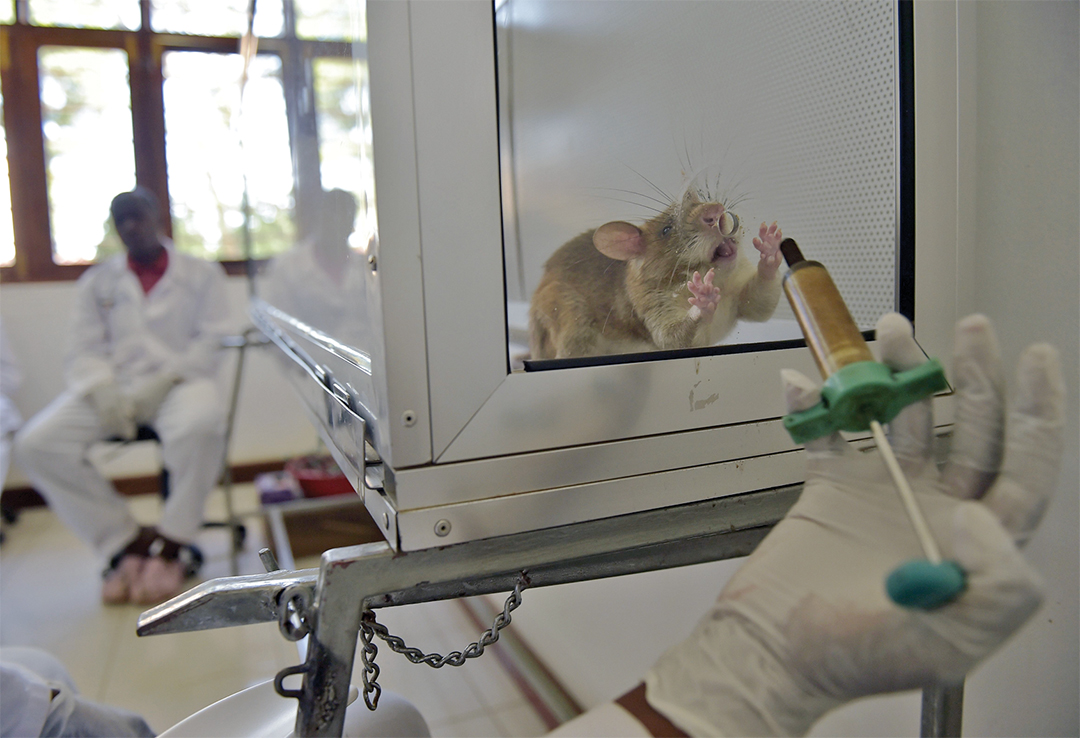AGENCE FRANCE-PRESSE
They have proven their worth in detecting land mines, and now Africa’s giant pouched rats are demonstrating another surprising skill — saving lives by helping to detect tuberculosis.
It’s all in the nose, says the Belgian nongovernmental organization APOPO. Its founders, in 1997, saw potential for these abundant rodents that possess a sense of smell as keen as a dog’s but are dismissed as vermin.
“The biggest obstacle has been the negative perception that people have of the rat,” said APOPO director Christophe Cox, whose NGO has been based in Morogoro in Tanzania’s eastern highlands since 2000.
That is changing since 83,000 land mines have been neutralized in Africa and Asia, thanks to the rodents, saving countless lives.
Eyebrows also were raised when the group, whose Dutch acronym stands for Anti-Personnel Landmines Detection Product Development, branched out in 2007 to use rats for TB detection under contracts with local authorities.
“When I first heard about this technique I was a bit shocked, but it proved to be quite efficient — in fact, more efficient than the microscopy we use,” said Daniel Magesa, a doctor at Pasada Upendano Clinic in the capital, Dar es Salaam.
The clinic sends APOPO’s Morogoro lab about 200 human sputum samples every month. Rats are given the samples, some of which contain tuberculosis traces. The rats indicate that they have detected the disease by pausing longer at a sample. The sample then is marked for further testing and confirmation.
Africa accounts for most of the million-plus people who die of TB each year. Untreated carriers can infect dozens of others, making speedy detection essential.
“The problem is the concentration of the TB in the samples we have,” Magesa said. “It is sometimes not concentrated enough for us to see it through the type of microscopy we use, even though it is very modern.”
Today, more than 29 hospitals in Dar es Salaam and Morogoro send samples to the Morogoro lab. Another dozen clinics in the Mozambique capital, Maputo, send samples to an APOPO center that opened in that country in 2013.
The NGO says it has detected 10,000 missed TB cases, identified by workers like Oprah and Violet, whiskers bristling as they move along a row of test tubes.
“The big advantage is how quick the rats are,” Cox said. “They can go through 100 samples in about 20 minutes, and this is what a lab technician will take four days to do.”


Comments are closed.